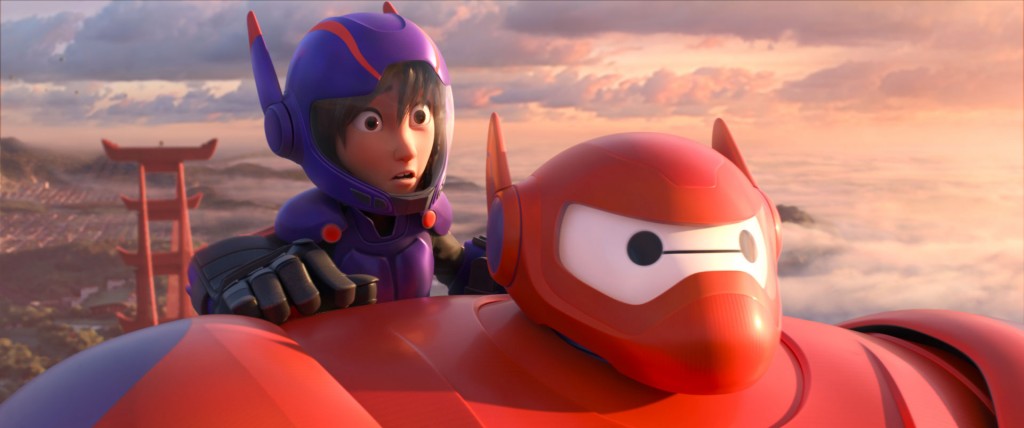
The action begins in a grungy, underground illegal robot boxing ring. Here, we find our hero, who just so happens to be named Hiro, a child prodigy who, at the age of 13, has graduated high school and pissed off the Japanese mafia. In the first five minutes, directors Don Hall and Chris Williams establish a unique world in “Big Hero 6,” providing action normally unseen in children’s movies. Unfortunately, the self-constraints that we have seen in most children’s movies bog down the next 90.
“Big Hero 6” isn’t just another Disney animated movie — it’s Marvel property. So we need an origin story. Hiro is an orphan and a boy genius, but that’s not enough to make him a superhero. Tadashi, his big brother and idol, had to die first.
Tadashi dies during the unveiling of Hiro’s “microbots” invention. Soon after, a supervillain appears, using that invention. With the help of some gadgets and a personal healthcare robot named Baymax (invented by Hiro’s brother), Hiro and a ragtag team of nerds (all friends of his brother’s) try to stop him.
“Big Hero 6” had the opportunity to be a great film, but settles for being mediocre. In trying to please everyone, it pleases no one. The main protagonist of Hiro is Asian. He has big eyes, in tribute to Japanese anime, but he is so bland and generically white-washed that his race doesn’t matter. He just needs to be able to be imprinted on by every 7- to 12-year-old. The whole cast of characters are “diverse.” There are Hispanic, Asian and African American characters, but so little time is devoted to those supporting roles that they might as well be token friends on a checklist.
The only well-rounded character is the robot Baymax. Scott Adsit of “30 Rock” fame gives the character so much heart with simple inflections of the voice that it’s hard not to fall for the character’s simplicity and cuteness. He’s well on his way to becoming a popular Christmas toy. But, even his arc is derivative of the much better film, “The Iron Giant.”
By the time the film reached its climax, I was not even angry that it decided to follow the ending to all Marvel films, with big things falling and buildings destroyed. No, my disappointment in the film had become indifference. “Big Hero 6” is neither offensive nor thought provoking. It is neither good nor bad. “Big Hero 6” is simply a product.
As a side note, the short that precedes the feature film, “Feast,” directed by Patrick Osborne, is a wonderful example of the emotional gut punch the montage can induce. This six-minute short is one long montage, and was more satisfying than “Big Hero 6” in every way.


